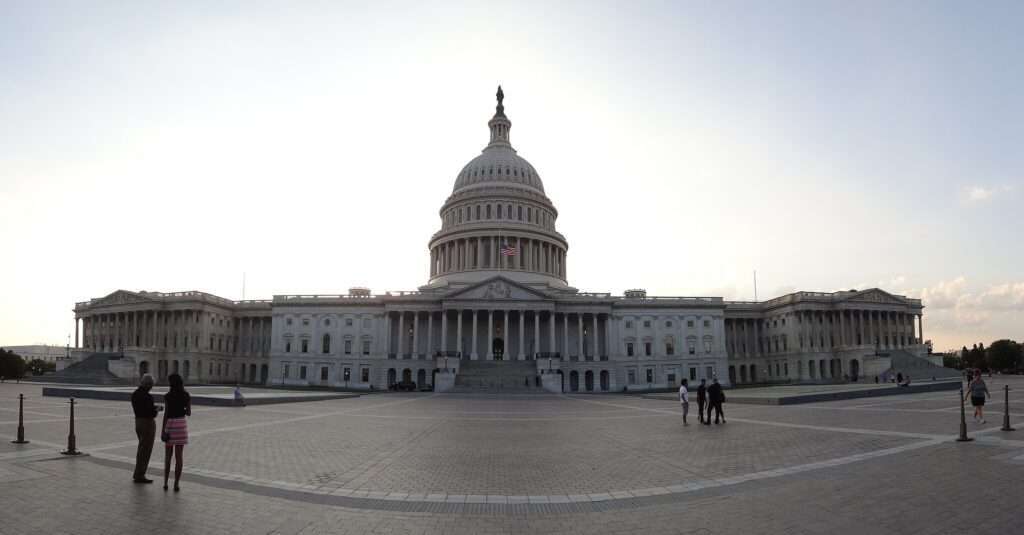
(Washington, D.C.) House Republicans are proposing a long-term funding bill that would cut spending on social programs and increase defense spending, but there is no deal yet to avert a government shutdown at the end of the month.
The current fiscal year ends on September 30, and Congress must pass a spending bill to keep the government running. If Congress cannot pass a spending bill by that date, the government will shut down.
House Republicans have been divided on how to proceed. Some members want to pass a short-term funding bill, known as a continuing resolution, to keep the government running until December. Others want to pass a long-term funding bill that would cover the entire fiscal year.
On September 17, House Republicans released a proposal for a short-term funding bill that would cut spending by 1% and include a border security bill. The proposal is unlikely to pass the Senate, which is controlled by Democrats.
READ ALSO: Government Shutdown: House Republicans Cancel Votes, Raising Concerns
House Republican leaders are now working on a long-term funding bill. The bill is expected to include cuts to spending on social programs such as Medicare and Medicaid, and increases in defense spending. It is also expected to include provisions on border security and immigration.
Democrats have criticized the Republican proposal, saying that it would hurt the poor and vulnerable. They have also warned that a government shutdown would have a negative impact on the economy.
“The Republican proposal is a recipe for disaster,” said Senate Majority Leader Chuck Schumer. “It would cut essential programs that help millions of Americans, and it would risk a government shutdown. We urge Republicans to work with us to pass a bipartisan funding bill that will keep the government open and protect our most vulnerable citizens.”
Economists have warned that a government shutdown would have a negative impact on the economy.
“A government shutdown would be a major blow to the economy,” said Mark Zandi, chief economist at Moody’s Analytics. “It would lead to job losses, slow economic growth, and hurt consumer confidence.”
It is unclear whether House Republicans will be able to agree on a long-term funding bill before the September 30 deadline. If they cannot, the government will shut down. A government shutdown would mean that many government services would be suspended, and hundreds of thousands of federal employees would be furloughed.
“A government shutdown is a lose-lose situation for everyone involved,” said Sarah Binder, a political scientist at George Washington University. “It hurts the economy, it disrupts essential government services, and it damages the public’s trust in the government.”
It is in the best interests of all parties involved to reach a deal to avert a government shutdown. However, given the partisan divisions in Congress, it is unclear whether they will be able to do so.
Conclusion
The House Republicans’ proposal for a long-term funding bill is likely to face stiff opposition from Democrats, and it is unclear whether the two parties will be able to reach a deal before the September 30 deadline. A government shutdown would have a negative impact on the economy and disrupt essential government services. It is in the best interests of all parties involved to reach a deal to avert a shutdown. However, given the partisan divisions in Congress, it is unclear whether they will be able to do so.
Implications for the Public
A government shutdown would have a number of implications for the public, including:
- Many government services would be suspended, such as passport processing, national park closures, and delays in Social Security and Medicare payments.
- Hundreds of thousands of federal employees would be furloughed, meaning they would not be paid and would have to stay home from work.
- The economy would be hurt by a shutdown, as businesses and consumers would lose confidence and spending would decline.
What You Can Do
If you are concerned about the possibility of a government shutdown, you can contact your elected representatives and urge them to work together to reach a deal. You can also stay informed about the latest developments by following news coverage of the issue.